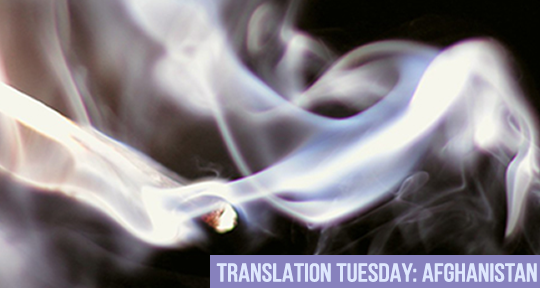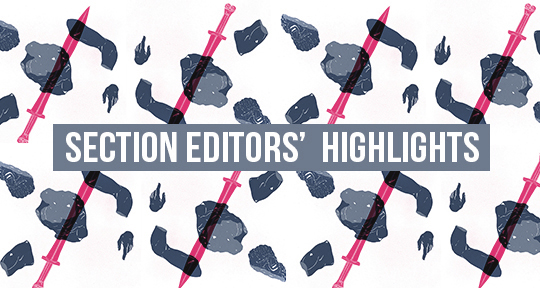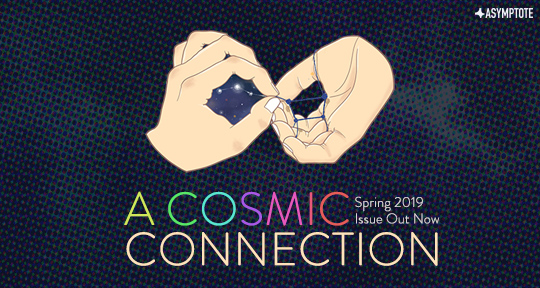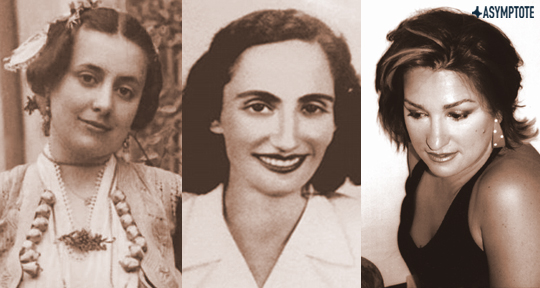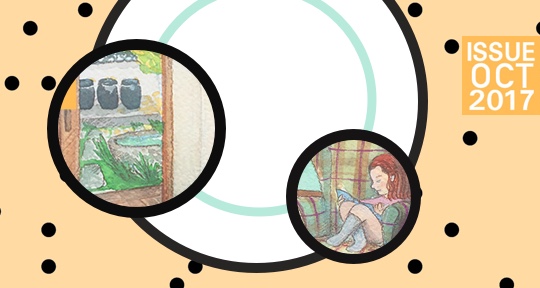Asymptote’s Winter 2020 edition has landed, and it concocts “A Fantastic Salad” with every ingredient you could wish for. Start with a double serving of interviews with Forrest Gander and Cecilia Vicuña, then get a bite of drama by Federico García Lorca, alongside new work from 31 countries. Our special of the day is Kurdish Poetry, honoring a people imperiled by Trump’s perfidy.
Discover our three contest winners chosen by Nobel laureate J. M. Coetzee, each celebrating an author deserving of wider recognition on the world stage. Taking top honors, Jonathan Cohen introduces Dominican poet Pedro Mir, the Whitman of the Caribbean. Runners-up Lara Norgaard and Manuel Antonio Castro Córdoba wrote about Indonesian writer Putu Oka Sukanta and Argentinian novelist Alberto Laiseca respectively. Together, they walk home with $1,000 in prizes.
Culinary traditions have a long history. Taurus loves “to cook up some delicious,” according to Gnaomi Siemens’ modernized Old Scots Horoscope. Bai Juyi’s minimal lyrics in eighth-century Chinese are also transformed by Joey Schwartzman for contemporary sensibilities. Continuing this issue’s exploration of colloquial modernity, Alice Inggs transposes Nathan Trantaal’s Kaapse Afrikaans into non-standard English for a poignant glimpse into South African poverty. Some Artists from Iran give us “The Visual Language of Protest,” a unique document of turbulent times, while Kurdish poet Sherko Bekas describes his own nation’s suffering through poetic paradox: “I am thirsty water.” Our own Lou Sarabadzic reviews an important new anthology Poetry of the Holocaust, remembering yet more suffering not to be forgotten. READ MORE…




